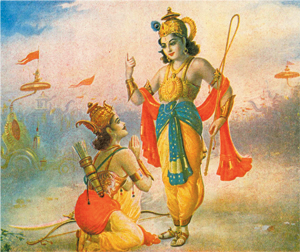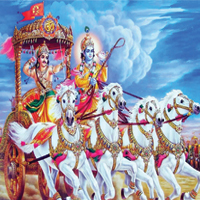Words to Live By…In today’s world, terrorism has no place.
The world’s largest issue is terrorism. The world must speak in one voice and act in unison against terrorism, without any political considerations, he said. “We must enlist religious leaders, thinkers, and opinion leaders in a societal effort against extremism that is specifically directed at young people,” he continued
The Mahabharata prohibits anarchy
|

Prime Minister Narendra Modi reiterated about taking tough action against terrorism while assuming the leadership of the G20. The world’s largest issue is terrorism. The world must speak in one voice and act in unison against terrorism, without any political considerations, he said. “We must enlist religious leaders, thinkers, and opinion leaders in a societal effort against extremism that is specifically directed at young people,” he continued.
It will be appropriate to discuss terrorism in light of Hindu scriptures while G20 leaders are discussing the battle against terrorism.
Raj Shah
Managing Editor
 Each country has an air force, a navy, an army, and a police force. These organizations act as both the people’s collective power and the nation’s guardians. It is the dharma. Indeed, it is dharmic for rulers to conduct their legal responsibilities and to use the required force, even lethal force, in the armed forces and security forces that protect their families and nations. Without this collective group of defenders, peacemakers, and peacekeepers—the legal system, the central administrative organizations that oversee the legal system, the armies, fleets, and air forces—could the priests do their duties? The businessmen could buy and sell their goods. The ability of the farmers to plant and harvest their crops Could the children play freely in the fields and on the streets? No. The answer is obvious.
Each country has an air force, a navy, an army, and a police force. These organizations act as both the people’s collective power and the nation’s guardians. It is the dharma. Indeed, it is dharmic for rulers to conduct their legal responsibilities and to use the required force, even lethal force, in the armed forces and security forces that protect their families and nations. Without this collective group of defenders, peacemakers, and peacekeepers—the legal system, the central administrative organizations that oversee the legal system, the armies, fleets, and air forces—could the priests do their duties? The businessmen could buy and sell their goods. The ability of the farmers to plant and harvest their crops Could the children play freely in the fields and on the streets? No. The answer is obvious.
Only criminals, anarchists, arsonists, and terrorists violate the law in the name of dharma and support their claims with quotes from the Mahabharata or any religious scripture. The Mahabharata prohibits anarchy. There is no support for terrorism in the Mahabharata.
The Mahabharata outlaws prostitution, drug trafficking, and the acquisition and sale of illegal weapons to protect and preserve society’s values. The Pāṇḍavas, the main characters of this ancient Hindu scripture, were not troublemakers. They weren’t inciting unrest. Furthermore, they weren’t financing their struggle through extortion.
They weren’t even using the sale of drugs to finance their conflict. They weren’t using prostitutes to further their cause in combat, either. They weren’t even actively seeking out women to join them in their fight. Kids weren’t being taught how to trap their victims, either.
 Dharma includes protecting one’s nation as well. But does that entail taking over other nations or stealing their land? Did the Pāṇḍavas intend this to happen? No, of course not. To keep their rule over their realm, they were only maintaining the status quo. Let’s not take it for granted that everyone has unrestricted freedom of action based solely on the Mahabharata and Ramayana. The mere allegation that Krishna lied stole some butter, and was mischievous in the Hindu scripture does not give the average individual the right to lie, steal, or be mischievous whenever they please—and perhaps to make these things a way of life. Clearly, this is not dharma. Simple, unadulterated lawlessness
Dharma includes protecting one’s nation as well. But does that entail taking over other nations or stealing their land? Did the Pāṇḍavas intend this to happen? No, of course not. To keep their rule over their realm, they were only maintaining the status quo. Let’s not take it for granted that everyone has unrestricted freedom of action based solely on the Mahabharata and Ramayana. The mere allegation that Krishna lied stole some butter, and was mischievous in the Hindu scripture does not give the average individual the right to lie, steal, or be mischievous whenever they please—and perhaps to make these things a way of life. Clearly, this is not dharma. Simple, unadulterated lawlessness
In today’s world, it is unquestionably against Hindu dharma and against what the Mahabharata teaches to establish a nation or even business on another person’s estate or on property that has been forcibly stolen from their domain or usurped.
Reference: Living with Śiva – Chapter 277























